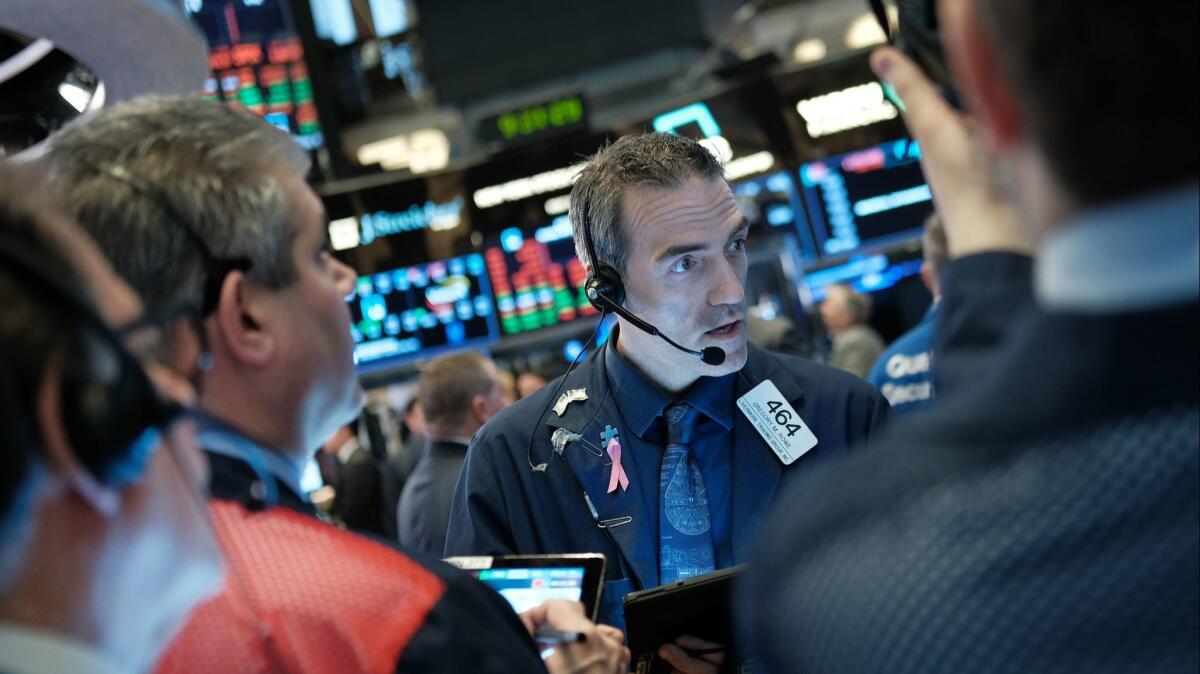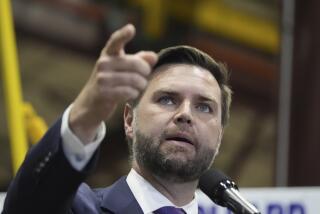Editorial: Trump threatens the Federal Reserve with his latest two picks

Having appointed several Cabinet secretaries who seemed intent on dismantling the departments they lead, President Trump has now aimed his bureaucratic wrecking ball at the Federal Reserve Board, which manages federal monetary policy through the U.S. central bank.
His latest two picks for the board — former Club for Growth founder Stephen Moore, who has been formally nominated, and former presidential candidate and pizza executive Herman Cain, whom Trump has said he intends to nominate — are Trump loyalists who seem likely to undermine the Fed’s perceived independence and interfere with its statutory mission. The Senate should waste little time in rejecting them.
The Fed plays a key but indirect role in the U.S. economy by influencing interest rates and the supply of money. By lowering interest rates and buying Treasury bills and other securities, the Fed can make money more available to lenders and borrowers, promoting growth during a recession. And by raising interest rates and selling the assets on its balance sheet, it can tighten the money supply, cooling an economy that’s overheated.
The Senate should waste little time in rejecting them.
That’s the theory, at least, although there are so many other forces at work that the Feds’ moves can take a while to have an effect. Meanwhile, the members of the board have to figure out how to balance two sometimes conflicting mandates from Congress: reducing unemployment (which may require stimulating the economy with low interest rates) and holding down inflation (which may require raising interest rates).
With the economy chugging along at a steady clip, employment rising and inflation seemingly held in check, you might think the Fed board was the president’s best friend. Instead, Trump has repeatedly berated its leader, Jerome H. Powell — whom President Obama had appointed in 2012 but Trump elevated to chairman last year — for gradually phasing out the stimulus the Fed was providing through artificially low interest rates.
Trump complains that the Fed’s efforts to bump up interest rates have slowed the economy, but it’s at least as accurate to say the Fed has been trying to stop pumping fuel into an economy that no longer needs the help. And the Fed certainly isn’t to blame for the global trade war that Trump triggered with his tariffs on steel, aluminum and Chinese exports, which has acted as a brake on growth in economies around the world.
Regardless, here’s where Moore and Cain come in. Both men are conspicuously tight with the president — Moore has been an advisor to Trump and helped write the tax-cut legislation that the GOP-controlled Congress passed in 2017, and Cain co-founded a pro-Trump political action committee. Trump’s hope, presumably, is that they would push the Fed to hew to the easy-money line that he covets.
There’s nothing new about presidents craving a Fed that supports their economic policies. But it would be one thing for Trump to nominate principled monetary policy experts who believe interest rates are too high. What he’s attempting instead is to add ideological partisans who seem to care most about juicing the economy artificially to help Trump get reelected.
Enter the Fray: First takes on the news of the minute »
Witness Moore’s complaints during the Obama administration that the Fed was holding rates too low for too long and buying too many assets. The economy was far more sluggish then, and with Congress in Republican hands, the Fed was the only source of stimulus available. Cain, too, was calling for higher interest rates well after Trump took office. Suddenly both are on the other side.
Both men also cling to idiosyncratic theories about monetary policy. Moore wants the Fed to tie its interest-rate moves to commodity prices, not the less-volatile basket of consumer goods the Fed currently uses. Such thinking could lead the Fed to tighten interest rates in response to a surge in oil prices during a recession, exacerbating the misery. For his part, Cain wants to return the United States to the gold standard, an inflexible approach to monetary policy that the world abandoned during the economic crises of the early 20th century.
The public’s confidence in the central bank is based on the belief that its board is made up of relatively non-political, sober-minded economists who are focused on high employment and low inflation, not the next election. Even Trump’s supporters in the Senate have to recognize that their long-term interests — and the country’s — are best served by a Fed that remains independent of the whims of the White House.
Follow the Opinion section on Twitter @latimesopinionand Facebook
More to Read
A cure for the common opinion
Get thought-provoking perspectives with our weekly newsletter.
You may occasionally receive promotional content from the Los Angeles Times.










